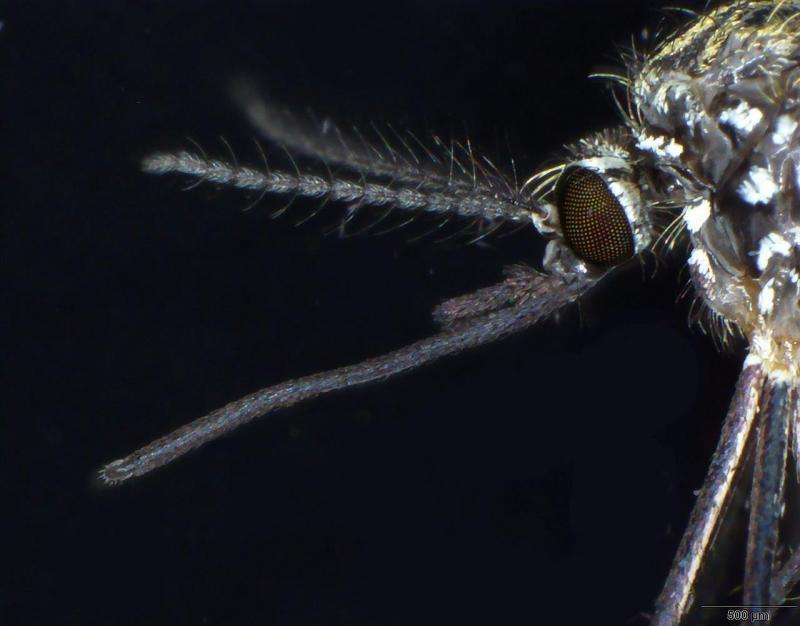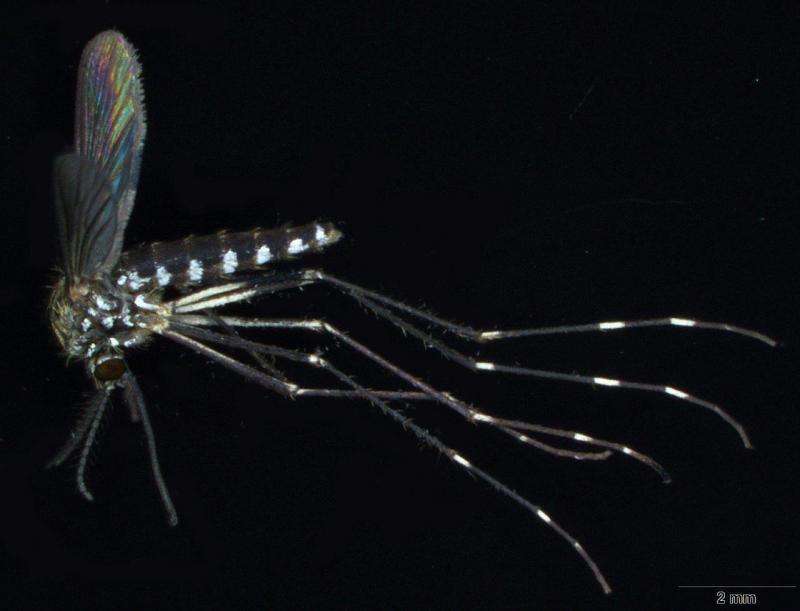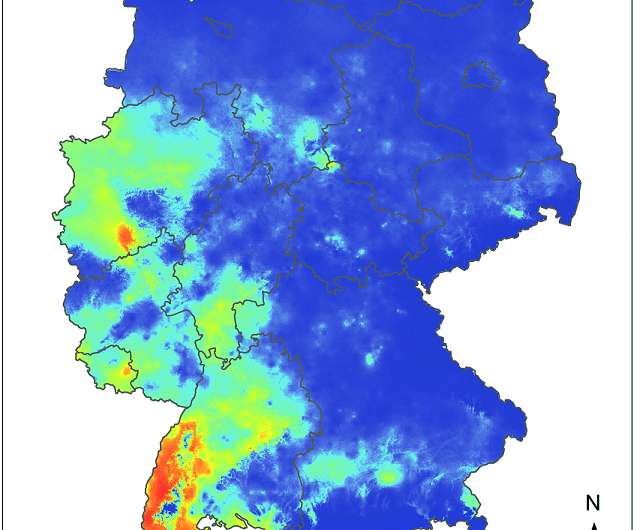Modeling identifies mosquito risk hotspots in Germany

Scientists at the Senckenberg Research Center for Biodiversity and Climate and at the Goethe University, in conjunction with other German colleagues, have developed distribution models for the invasive Asian rock pool mosquito. This mosquito species is a potential carrier of vectors for infectious diseases, such as dengue fever or West Nile virus. In a recent study, published in the scientific journal Parasitology Research, the scientists identified new risk hotspots in Southern Hesse, the Saarland and northern North Rhine-Westphalia, and they recommend a careful monitoring of this invasive insect.
Chinese mitten crabs, ring-necked parakeets, rheas and Egyptian geese: exotic species have long since become part of German ecosystems and now live right in our midst. In Germany alone, more than one thousand non-native animal species are registered – but most of the introduced species do not survive the winter in our latitudes. "However, the Asian rock pool mosquito is a different case," says Professor Dr. Sven Klimpel, a parasitologist at the Senckenberg Research Center for Biodiversity and Climate and the Goethe University in Frankfurt, and he adds, "These mosquitoes have spread extensively across Germany and Europe in recent years." For the first time, the dipterans were reported in 2008 from southern Baden-Wuerttemberg; since then, populations have also become established in Lower Saxony, Rhineland-Palatinate and North Rhine-Westphalia. Contrary to the Asian tiger mosquito, the Asian rock pool mosquito is adapted to cooler temperatures and is perfectly able to cope with the climatic conditions in Central Europe.

While other invasive species do not constitute a threat and may even enrich the species diversity, the Asian rock pool mosquito is a potential carrier of dangerous infectious diseases or their vectors, such as dengue fever, the Japanese encephalitis or the West Nile virus. "To date, the transmission potential has only been confirmed in the laboratory and not in the outdoors. However, the West Nile virus could already be isolated from wild-caught mosquitoes in the USA," explains Klimpel.
In their study, the parasitologists and infection biologists have modeled potential distribution areas for this mosquito. To this end, they combined various factors, such as the monthly average temperature or the months with the lowest precipitation with mathematical variables and the actual discovery data. "This methodology enables us to predict the distribution of a species on the basis of incomplete observations and samples," explains Klimpel, and he adds, "This is necessary, since there is no systematically designed sampling procedure for the mapping of the exact distribution area to date – not least for cost reasons."In order to better be able to coordinate future monitoring and prevention programs, it is essential to know and localize potentially favorable regions for this mosquito species.

"Our modeling clearly shows that besides the already known areas in Baden-Wuerttemberg, Rhineland-Palatinate, North Rhine-Westphalia and Lower Saxony, Southern Hesse, the Saarland and the northern parts of North Rhine-Westphalia also constitute climatically favorable areas for the Asian rock pool mosquito," according to Klimpel's summary of the scientific study. On the basis of these results, the monitoring of the Asian rock pool mosquito can be done in a more focused and systematic fashion, and sampling may be conducted efficiently, fast and cost-effectively.
More information: "Modeling of the putative distribution of the arbovirus vector Ochlerotatus japonicus japonicus (Diptera: Culicidae) in Germany." Parasitology Research. DOI: 10.1007/s00436-014-4274-1

















